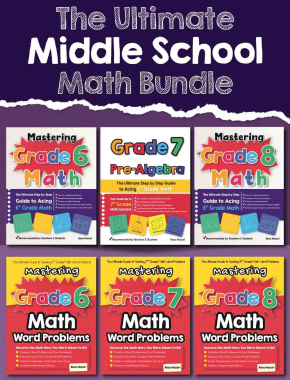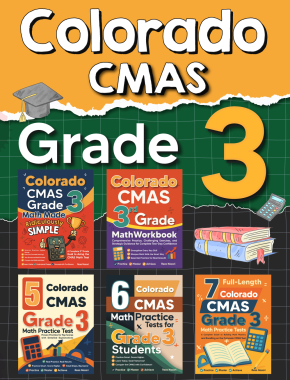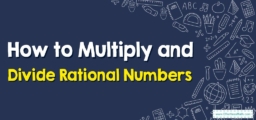How to Compare and Order Rational Numbers?
Comparing and ordering numbers is a concept in which we first compare numbers and then arrange them in ascending or descending order. In this guide, you can learn how to compare and order rational numbers.
[include_netrun_products_block from-products="product/6-south-carolina-sc-ready-grade-3-math-practice-tests/" product-list-class="bundle-products float-left" product-item-class="float-left" product-item-image-container-class="p-0 float-left" product-item-image-container-size="col-2" product-item-image-container-custom-style="" product-item-container-size="" product-item-add-to-cart-class="btn-accent btn-purchase-ajax" product-item-button-custom-url="{url}/?ajax-add-to-cart={id}" product-item-button-custom-url-if-not-salable="{productUrl} product-item-container-class="" product-item-element-order="image,title,purchase,price" product-item-title-size="" product-item-title-wrapper-size="col-10" product-item-title-tag="h3" product-item-title-class="mt-0" product-item-title-wrapper-class="float-left pr-0" product-item-price-size="" product-item-purchase-size="" product-item-purchase-wrapper-size="" product-item-price-wrapper-class="pr-0 float-left" product-item-price-wrapper-size="col-10" product-item-read-more-text="" product-item-add-to-cart-text="" product-item-add-to-cart-custom-attribute="title='Purchase this book with single click'" product-item-thumbnail-size="290-380" show-details="false" show-excerpt="false" paginate="false" lazy-load="true"]

Comparing numbers is just a process of identifying greater and smaller numbers. The order of the numbers includes comparing them and arranging them in ascending or descending order.
Related Topics
A step-by-step guide to comparing and ordering rational numbers
Comparing and ordering numbers is a concept in mathematics in which we compare numbers according to their values and identify smaller and bigger numbers and then arrange them in ascending or descending order.
What is the ordering number?
Ordering numbers is a way of arranging them in order – either from small to big or big to small. When we arrange the numbers in ascending order, we arrange them from small to big, and when we arrange the numbers from big to small, they are called descending.
What is comparing numbers?
Comparing numbers is a way of comparing two or more numbers and identifying whether one number is equal, lesser, or greater than the other numbers. We can compare numbers using different methods such as on a number line, by counting, or by counting the number of digits, using place values of the numbers, etc.
Comparing rational numbers
When comparing rational numbers, we consider the \(LCM\) denominator of rational numbers. We convert rational numbers into similar fractions and then compare rational numbers. There are some points to remember before learning how to compare rational numbers:
All negative rational numbers are less than \(0\). All negative rational numbers are less than \(0\). And All positive rational numbers are greater than all negative rational numbers.
Ordering rational numbers
To order rational numbers use these steps:
- Convert all numbers to a common format.
- Put them required ordered.
- Rewrite in the original format.
Comparing and Ordering Rational Numbers – Example 1:
Order the following rational numbers from greatest to least: \(2^2,\:40\%,\:4.53,\:\frac{19}{4},\frac{25}{6}\).
Solution:
First, convert all rational numbers into decimals:
\(2^2=2×2=4\)
\(40\%=40\div 100=0.40\)
\(4.53= 4.53\)
\(\frac{19}{4}=19\div 4=4.75\)
\(\frac{25}{6}=25\div 6=4.16\)
Next, compare each place value digit, working from left to right, and order the decimals from greatest to least:
\(4.75,\:4.53,\:4.16,\:4,\:0.4\)
Finally, replace each decimal with the corresponding rational number from the original list:
\(\frac{19}{4},\:4.53,\:\frac{25}{6},\:2^2,\:40\%\)
Exercises for Comparing and Ordering Rational Numbers
Order the following rational numbers from least to greatest.
- \(\color{blue}{0.780,\:72.5\%,\:\frac{4}{5},\:\sqrt{4},\:\frac{3}{4}}\)
- \(\color{blue}{135\%,\:13.5,\:8\frac{3}{5},\:3.9\times 10^2}\)
- \(\color{blue}{0.16,\:16.7\%,\:\frac{2}{5}, \:3.2\times 10^{-3}}\)
Compare the following rational numbers using \(>, <, or =\).
- \(\color{blue}{10\%\:▢\:\frac{1}{8}}\)
- \(\color{blue}{\frac{2}{5}\:▢\:\frac{3}{4}}\)
- \(\color{blue}{\frac{5}{-8}\:▢-\frac{17}{23}}\)
- \(\color{blue}{72.5\%,\:\frac{3}{4},\:0.780,\:\frac{4}{5},\:\sqrt{4}}\)
- \(\color{blue}{135\%,\:\:8\frac{3}{5},\:13.5,\:3.9\times \:10^2}\)
- \(\color{blue}{\:3.2\times 10^{-3},\:0.16,\:16.7\%,\:\frac{2}{5}}\)
- \(\color{blue}{10\%\:<\:\frac{1}{8}}\)
- \(\color{blue}{\frac{2}{5}\:<\:\frac{3}{4}}\)
- \(\color{blue}{\frac{5}{-8}\:>-\frac{17}{23}}\)
Related to This Article
More math articles
- FREE 4th Grade MEAP Math Practice Test
- 5th Grade ISASP Math Worksheets: FREE & Printable
- 10 Most Common 3rd Grade IAR Math Questions
- Math Made Easy: Essential Tips to Memorize Formulas and Supercharge Your Learning
- How to Determine the Classification of a System of Equations?
- How to Find Perimeter and Area Relationship
- How to Find Rational and Irrational Numbers?
- What Is the Best Calculator for Geometry?
- The Consistent Player in Mathematics: How to Understand the Constant Rate of Change
- Number Properties Puzzle – Challenge 17



























What people say about "How to Compare and Order Rational Numbers? - Effortless Math: We Help Students Learn to LOVE Mathematics"?
No one replied yet.